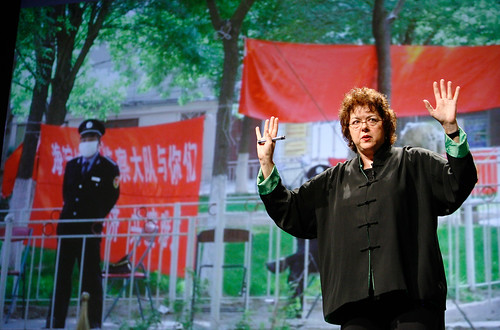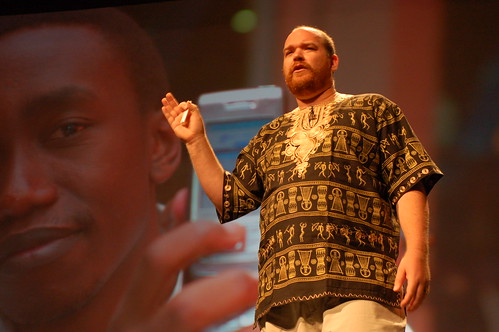Preparing for Pandemics: Resources from PopTech & Sterling Insights
/From Pop!Tech:
 October 25, 2008: Laurie Garrett shares her proposal for a change in global health policy, and accompanying shifts in foreign policy and perception by countries like the US. photography by kris krüg Renowned global health expert Laurie Garrett gave a powerful and frightening talk at PopTech 2008 on how countries deal - both effectively and ineffectively - with pandemics. Examining China's response to SARS, she asked: what if this happened here? How would we respond? Her presentation is essential viewing right now:
October 25, 2008: Laurie Garrett shares her proposal for a change in global health policy, and accompanying shifts in foreign policy and perception by countries like the US. photography by kris krüg Renowned global health expert Laurie Garrett gave a powerful and frightening talk at PopTech 2008 on how countries deal - both effectively and ineffectively - with pandemics. Examining China's response to SARS, she asked: what if this happened here? How would we respond? Her presentation is essential viewing right now:
http://www.poptech.org/popcasts/popcasts.aspx?lang=&viewcastid=227
Yesterday, just in time for the World Health Organization to raise the threat level from a 3 to a 4 (on a 6-point scale), Laurie gave a wide-ranging press teleconference on Swine Flu. We've summarized some of her high-level questions and answers on our blog:
http://www.poptech.org/blog/index.php/archives/3356

Finally, 2008 PopTech Fellow Erik Hersman (http://twitter.com/whiteafrican) wrote a terrific piece on information patterns that emerge during an emergency on social networking platforms (like Twitter), and how these can be aggregated and turned into real-time maps that shape a strategy for intervention:
http://blog.ushahidi.com/index.php/2009/04/27/information-patterns-and-thoughts-on-swine-flu/
The above represent just the kind of clear thinking we may yet need in this circumstance. Have a look, and if you feel moved to do so, please help us share these insights by forwarding, blogging, and tweeting the above to friends and colleagues.
From Joe & Rita Sterling of Sterling Insights:
 It’s been three years since our last pandemic readiness workbook update: Preparing for Pandemic – Family and Neighborhood Readiness Workbook. The Avian Flu has continued to smolder in Asia, Africa and parts of the Middle East only a few new human cases emerged. However, other strains of influenza have continued to mutate, including the new Swine Flu which is in the news today.
It’s been three years since our last pandemic readiness workbook update: Preparing for Pandemic – Family and Neighborhood Readiness Workbook. The Avian Flu has continued to smolder in Asia, Africa and parts of the Middle East only a few new human cases emerged. However, other strains of influenza have continued to mutate, including the new Swine Flu which is in the news today.
You can download a complimentary copy of our updated readiness workbook from our website: http://www.sterlinginsights.com/articles/pandemic_flu_20090501_dnld.pdf
Or you can order a paperback version: http://www.lulu.com/content/263485
From Joe Sterling:
http://www.wpxi.com/video/19313969/index.html
Here’s a great flu explanation on video by Henry Niman, Ph.D. founder of Recombinomics, a research firm focused on genetic evolution of infectious diseases. http://www.recombinomics.com/whats_new.html
I’ve been tracking Niman since 2005 and he is always a bit ahead of everyone else and tells it like it is.
Joe














